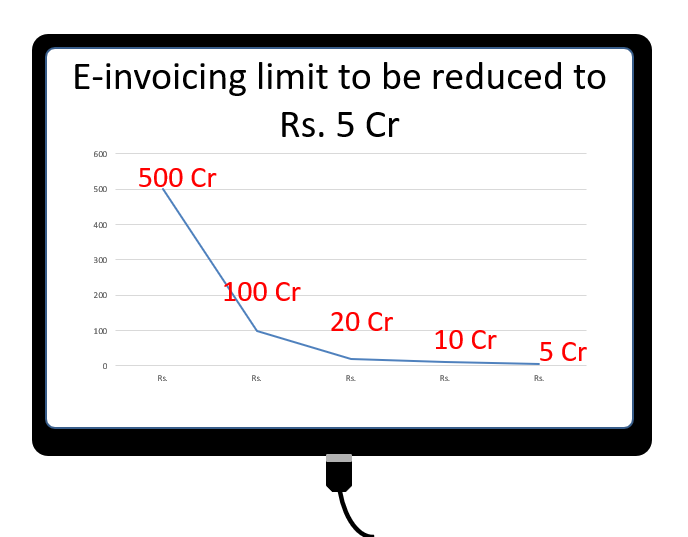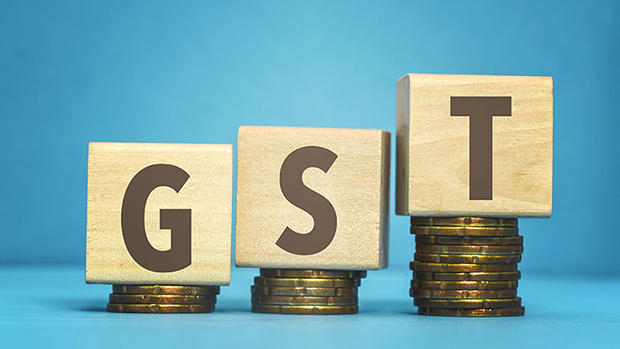On July 28, 2023, the Central Board of Indirect Taxes and Customs (CBIC) announced a significant change in the Goods and Services Tax (GST) rules in India. As per the new guidelines, companies with a turnover of more than ₹5 crore will be required to generate electronic invoices (e-invoices) for their business-to-business (B2B) transactions or exports.
Previously, this requirement applied only to companies with an annual revenue of ₹10 crore or above. The CBIC’s move aims to boost tax collections and compliance under the GST regime. The inclusion of Micro, Small, and Medium Enterprises (MSMEs) in the e-invoicing regime is seen as a positive development that can benefit both businesses and the government.
Changes for Companies with Turnover > ₹5 Crore:

- As of August 1, 2023, companies with an aggregate turnover of more than ₹5 crore in any financial year are required to produce e-invoices for their B2B transactions and exports.
- The previous threshold for e-invoicing was ₹10 crore, but it has now been reduced to ₹5 crore.
- This change is aimed at increasing compliance and tax collections in the GST system.
Benefits for MSME Sector:
- The inclusion of MSMEs in the e-invoicing regime is seen as a positive step that can boost the sector’s growth.
- Experts believe that the expansion of e-invoicing to MSMEs will improve the flow of input tax credit and reduce credit-related issues for suppliers.
- Phased implementation of e-invoicing has helped in reducing disruptions, improving compliances, and increasing revenue.
- The move is expected to benefit the overall business ecosystem by reducing costs, minimizing errors, ensuring faster invoice processing, and limiting commercial disputes in the long run.
Government’s Focus on Raising Revenue and Tackling Tax Evasion:
- The reduction in the threshold limit for e-invoicing is expected to help the GST department in raising additional revenue and curbing tax evasion.
- The government is leveraging robust data analytics and artificial intelligence to identify and track risky taxpayers.
- Data sharing with partner law enforcement agencies enables a more targeted intervention in addressing tax evasion effectively.
Find More News on Economy Here



 ODI World Cup winners full list (1975-20...
ODI World Cup winners full list (1975-20...
 Uttarakhand Tourism Announced India's Fi...
Uttarakhand Tourism Announced India's Fi...
 UNESCO Guillermo Cano Prize 2024 Awarded...
UNESCO Guillermo Cano Prize 2024 Awarded...
